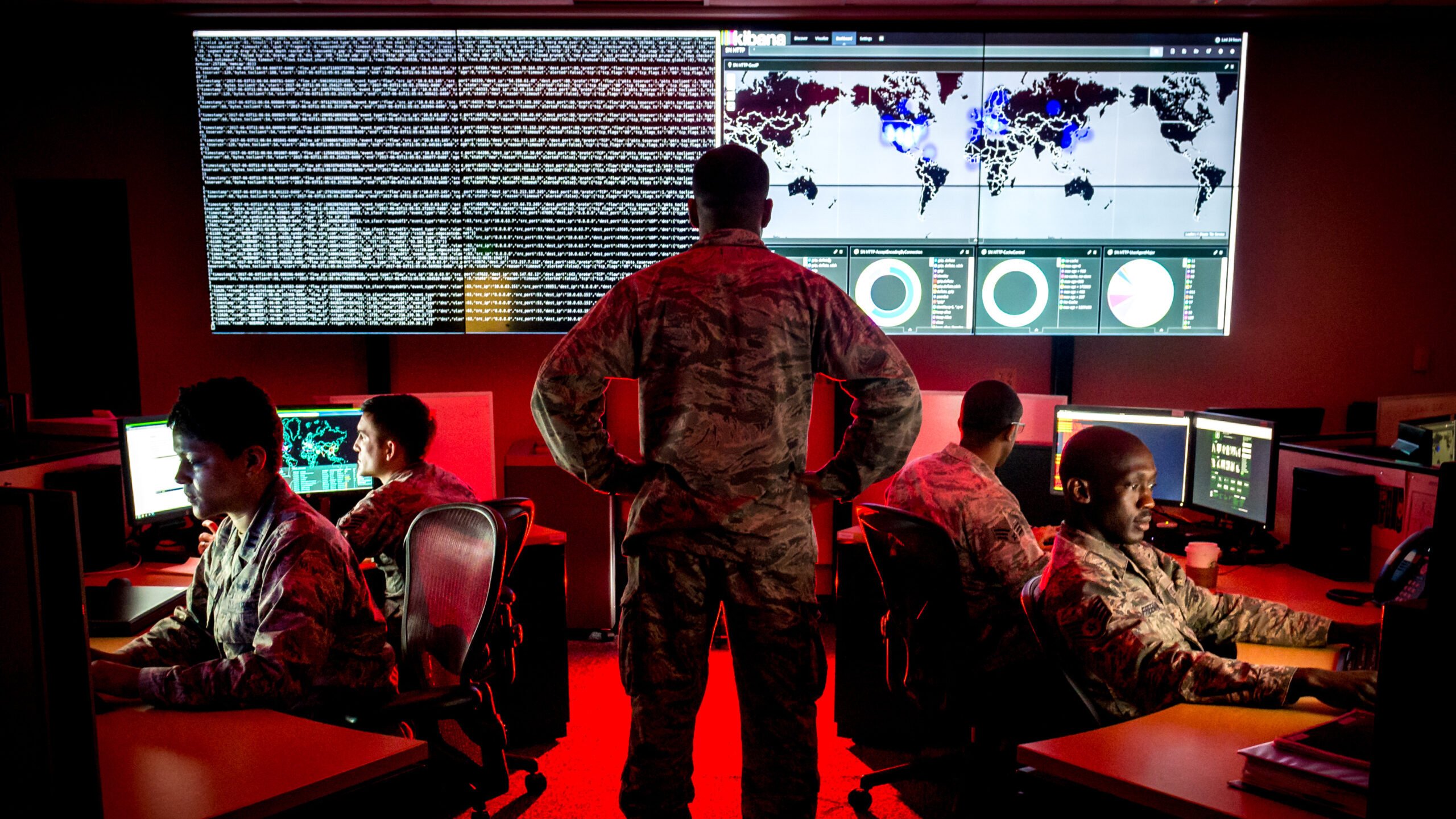
Capt. Taiwan Veney, cyber warfare operations officer, watches members of the 175th Cyberspace Operations Group. (U.S. Air Force photo by J.M. Eddins Jr.)
WASHINGTON — A bicameral group of lawmakers today introduced legislation that would require the Pentagon to “expand cybersecurity cooperation with Taiwan” to counter threats from China.
“We must push back on the Chinese Communist Party’s growing aggression, and its attempts to undermine democracy around the world — including through hostile cyber actions. All too often, we’ve seen Taiwan used as a testing ground for China’s cyberattacks later used against the United States,” said co-sponsor Sen. Jacky Rosen, D-Nev., in a press release today, which cited Taiwanese government statistics estimating it faced between 20 and 40 million Chinese cyberattacks every month in 2019.
The legislation, called the Taiwan Cybersecurity Resiliency Act, is also sponsored by Mike Rounds, R-S.D., and Reps. Mike Gallagher, R-Wisc., and Chrissy Houlahan, D-Penn. Gallagher is the chairman of the House select committee focused on competition between the US and China. He also co-chaired the Cyberspace Solarium Commission in a previous Congress.
Adm. John Aquilino, the commander of US Indo-Pacific Command, testified to the Senate Armed Services Committee this morning that improving cybersecurity capabilities between the United States and its allies and partners in the region is on his unfunded priorities list.
“To talk to those allies and partners right now, [there are] 13 separate networks,” he said in response to a question from Rosen. “That’s costly, they’re at risk. And what we are attempting to deliver is a single pane of glass that allows us to communicate securely in a safe way with all of our partners across the region.”
The legislation would authorize the defense secretary to conduct cybersecurity training exercises with Taiwan and defend the country’s military networks and infrastructure as well as leverage US cybersecurity technologies to help stop further attacks from China.
Legislation related to national security rarely passes through Congress as a standalone bill. The most likely time the legislation will receive serious consideration from either the House or Senate is later in the year when lawmakers begin drafting the annual defense policy and spending bills.
While testifying to lawmakers today, Aquilino also disputed the notion that US aid being sent to Ukraine to defend itself from Russia is hampering the Pentagon’s ability to support Taiwan.
“The United States is the only global force capable of managing multiple threats. My partner in [US European Command] is executing his mission sets. I haven’t been impacted at this point as it applies to my deterrence mission,” he said in response to a question from Sen. Roger Wicker, R-Miss. “So, I do believe we can do both. I believe we have to do both to maintain the peace.”
Breaking Defense’s Ashley Roque contributed to this report.








